Composers
Edgard Victor Achille Charles Varèse (French: [ɛdɡaːʁ viktɔːʁ aʃil ʃaʁl vaʁɛːz]; also spelled Edgar Varèse;[1] December 22, 1883 – November 6, 1965) was an innovative French-born composer who spent the greater part of his career in the United States.
Varèse's music emphasizes timbre and rhythm. He was the inventor of the term "organized sound", a phrase meaning that certain timbres and rhythms can be grouped together, sublimating into a whole new definition of music. Edgard Varèse challenged traditional conceptions of noise and instead found ways to transform noise into music; Varèse believed that noise was simply "any sound one doesn't like",[2] and he perceived music as a mere organized collection of noises, with composers being responsible for organizing noises in a pleasing way for the listener. Although his complete surviving works only last about three hours, he has been recognised as an influence by several major composers of the late 20th century. Varèse saw potential in using electronic mediums for sound production, and his use of new instruments and electronic resources led to his being known as the "Father of Electronic Music" while Henry Miller described him as "The stratospheric Colossus of Sound".
Recently Added
| Country: | United States Of America |
| Period: | XX age |
Biography
Edgard Victor Achille Charles Varèse (French: [ɛdɡaːʁ viktɔːʁ aʃil ʃaʁl vaʁɛːz]; also spelled Edgar Varèse;[1] December 22, 1883 – November 6, 1965) was an innovative French-born composer who spent the greater part of his career in the United States.
Varèse's music emphasizes timbre and rhythm. He was the inventor of the term "organized sound", a phrase meaning that certain timbres and rhythms can be grouped together, sublimating into a whole new definition of music. Edgard Varèse challenged traditional conceptions of noise and instead found ways to transform noise into music; Varèse believed that noise was simply "any sound one doesn't like",[2] and he perceived music as a mere organized collection of noises, with composers being responsible for organizing noises in a pleasing way for the listener. Although his complete surviving works only last about three hours, he has been recognised as an influence by several major composers of the late 20th century. Varèse saw potential in using electronic mediums for sound production, and his use of new instruments and electronic resources led to his being known as the "Father of Electronic Music" while Henry Miller described him as "The stratospheric Colossus of Sound".
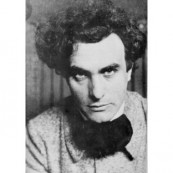
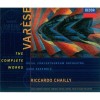

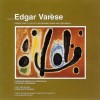


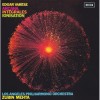
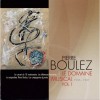
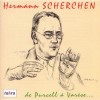
![Anthology of the Royal Concertgebouw Orchestra: Live the Radio Recordings 1960-1970 [CD10]](http://static.classicalm.com/repository/disk-cover/small/3447-img1395224268797200.jpg)